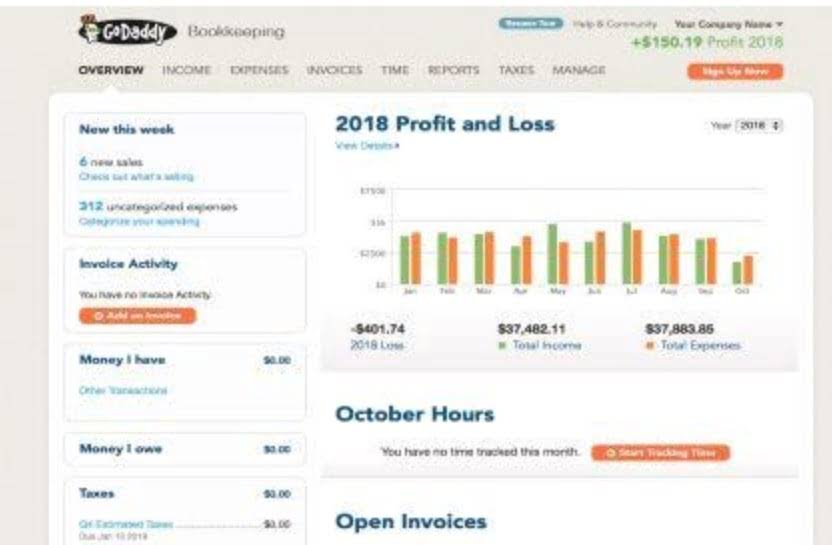
Are you too swamped with your business to handle your books on your own? Did you make a big boo-boo and need help getting your books back in order? If you said “yes” to one (or more) of these questions, it might be time to hire an accountant. law firm chart of accounts Involve your personal accountant in the decision-making process, leveraging their expertise to evaluate the financial implications of major business decisions. Look for a personal accountant with experience working with businesses similar to yours, as they will be better equipped to understand your specific financial needs and challenges. It’s also record-keeping, analyzing, financial planning and forecasting, and complying with state and federal regulations.
- If you find managing your finances takes up too much of your time, it may be worth considering hiring an accountant.
- Working with accounting software and professional advisors can help prevent these costly mistakes and ensure your books remain accurate and compliant.
- It’s beneficial to seek an accountant who utilizes automated accounting software like QuickBooks, which can enhance efficiency and provide real-time insights into your business’s financial health.
- Depending on the size of your business and how confident you feel with accounting, it’s possible to run a business without an accountant.
Ways Small Businesses Can Handle Accounting
Using your intuition, while comparing their skill set and experience with the fees they are charging, you will be able to select the best accountant for your business. The most obvious benefit of hiring a CPA is that they can help you make better decisions about how to handle your money. They’ll work closely with you to create financial strategies and plans for your business, which allows you to focus on other aspects of operations.
- Look for an accountant with relevant experience, a strong understanding of your industry, and a proactive approach to financial management.
- Or you may have moved out of state or tapped into your 401(k) for supplemental income.
- Modern tools provide automated categorization, approval workflows, and audit trails that make these tasks straightforward and accurate.
- But a bookkeeper’s job, mainly that of recording transactions properly as it relates to a company’s income and expenses, is important.
- If that describes you, then it may be time to explore a higher level of service from an accounting firm.
- Christina is a freelance editor and contributor with Newsweek’s small business team.
Meet Top Certified Financial Advisors Near You
If you’ve been running your business for a while, the experience and skills of a CPA will keep complicated tax situations in check, and help you stay informed and compliant with laws. • Depending on what are retained earnings their training and experience, accountants can assist with tax filing, deductions, payroll, business finances, and personal financial management. Although there are exceptions to the rule, generally speaking, if you need help with financial planning and investments, it’s best to work with a certified financial advisor. If you’re looking for help preparing a tax return or understanding the tax implications of a particular financial decision, an accountant or CPA is usually a better choice.

Finance Articles

The hourly rate for a bookkeeper depends on where you are, what services you seek, and what expertise the person offers, but the fee averages to about $22 per hour. While you can do it all yourself, accounting software like Bench will make things significantly easier for you to run your business and take some stress off of you. Accounting software can decrease your chances of making mistakes and free up a lot of your time to focus on other aspects of your business. The software will also make it easier for you to do your taxes at the end of the year, whether you hire an accountant or do them yourself.
You can quickly review and approve transactions from your phone, keeping an eye on your finances without getting bogged down in data entry and paperwork. Your AP automation software should serve as your primary document management system for all vendor-related materials, from contracts and W-9s to receipts and invoices. If you cannot figure it out, or if you are perpetually worried, then professional help is always an option. If you just are wondering if you are not supposed to be doing this stuff yourself, then stop worrying.

Managing invoices and bills
This can help you develop strategies to grow your business more efficiently. When it comes to the business’s bookkeeping and tax consequences, a small business owner should consider getting advice from a professional to answer the question of “do I need a CPA? ” This step ensures that they are compliant with all relevant tax laws. Not having a CPA lined up (and consequently doing key steps in your financial management process incorrectly) can prove more costly in the long personal accountant run due to mistakes, fees and delays. If you’re just starting out as a small business owner, an accountant could help with the financial segments of your business plan.
- 11 Financial is a registered investment adviser located in Lufkin, Texas.
- Additionally, many low- and moderate-income households qualify for free tax preparation and filing with the help of IRS-certified volunteer tax preparers.
- With your legal structure and EIN in place, open a business checking account and obtain a business credit card.
- After all, there is some merit to wrapping all of your financial needs into one little package from the same professional you already trust.
- Collaborating with an accountant can help you determine areas within your business that are primed for growth by reviewing your cash flow statements and patterns.
By all accounts…
Beyond simple expense organization, the tool can also automatically generate reports, helping the business owner see the company’s financial health. Whether you own or manage a startup or small- to mid-size business (SMB), it’s important to know the right time to hire an accountant and when to seek help with other accounting and bookkeeping needs. In some areas, it can be worth your while to get an accountant on board because they have knowledge and areas of expertise you and your bookkeeper may not. If your tax situation turns into an audit situation, for example, you’ll want an accountant on that — probably a certified public accountant (CPA). CPAs are state-certified to possess up-to-date knowledge of tax codes and processes and any applicable legislation — the kind of knowledge that can improve your tax picture overall. A good bookkeeper can handle a lot of it, including the daily tasks of updating records and customer payments, inputting invoices and employee hours and tracking transactions in the accounting system.
